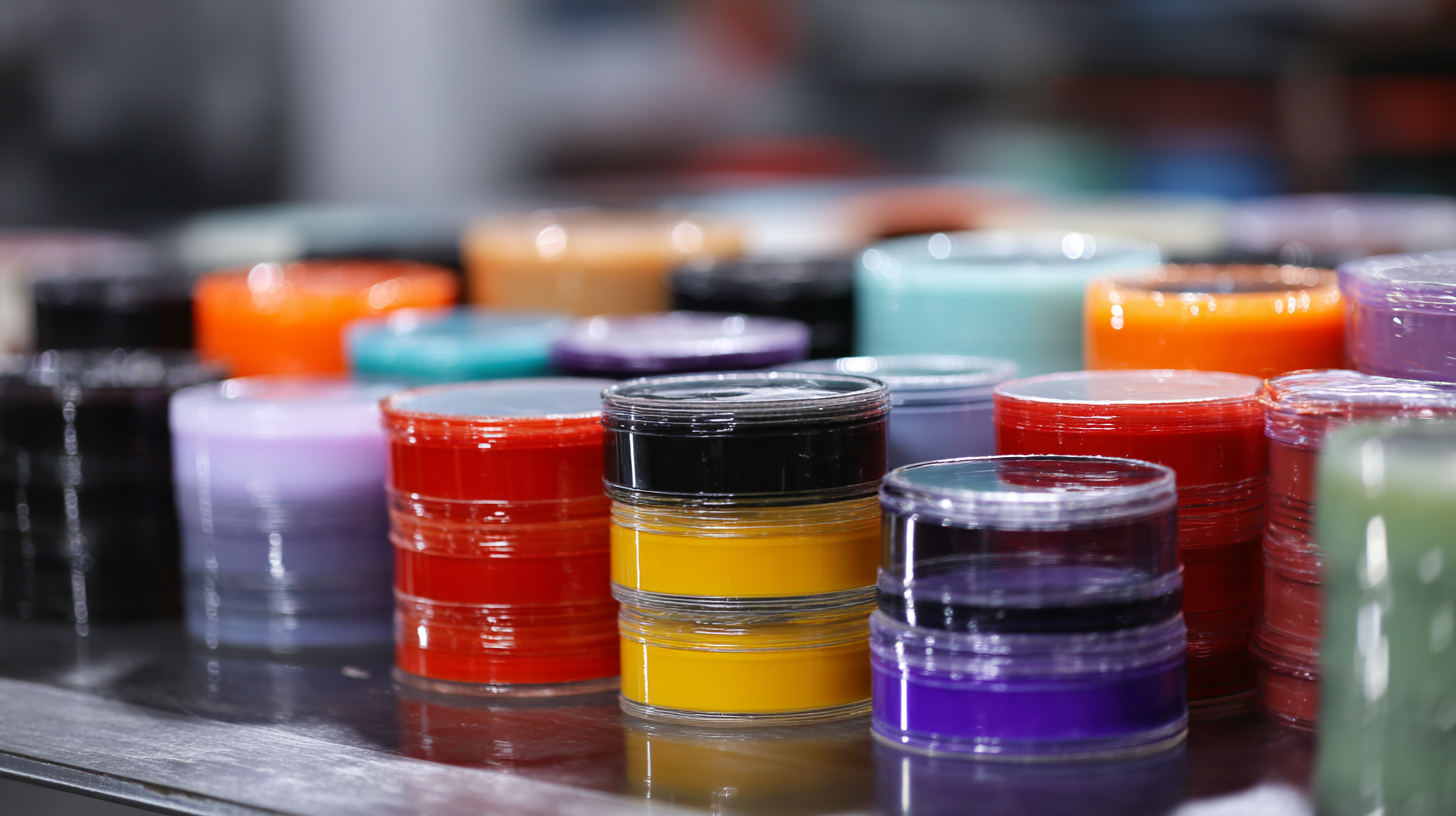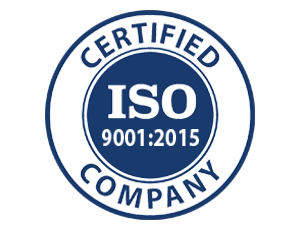Liquid Molding Monthly
7 Essential Tips for Sourcing the Best Polymer Resin Globally
The global polymer resin market has witnessed substantial growth, driven by the increasing demand across various industries, including automotive, construction, and packaging. According to a recent market report by Research and Markets, the global polymer resin market is projected to reach USD 1 trillion by 2026, growing at a Compound Annual Growth Rate (CAGR) of over 5% from 2021 to 2026. This surge emphasizes the critical need for businesses to source high-quality polymer resins effectively. However, navigating the diverse landscape of polymer resins, which include thermoplastics, thermosetting plastics, and specialty resins, can be challenging. Each type has its own unique properties and applications, making it imperative for companies to understand the essential factors for sourcing the best materials for their specific needs. This blog will outline seven essential tips that can assist businesses in identifying and procuring the most suitable polymer resins on a global scale, ensuring high performance and sustainability in their production processes.

Understanding the Different Types of Polymer Resins for Global Sourcing
 When sourcing polymer resins globally, it's crucial to understand the diverse types available in the market. Polymer resins can be broadly categorized into thermoplastics and thermosetting plastics. Thermoplastics, such as polyethylene and polypropylene, are characterized by their ability to be reshaped upon heating, making them highly versatile for various applications. On the other hand, thermosetting plastics, like epoxy and phenolic resins, become permanently hardened after curing, offering superior durability and heat resistance, ideal for products requiring high strength.
When sourcing polymer resins globally, it's crucial to understand the diverse types available in the market. Polymer resins can be broadly categorized into thermoplastics and thermosetting plastics. Thermoplastics, such as polyethylene and polypropylene, are characterized by their ability to be reshaped upon heating, making them highly versatile for various applications. On the other hand, thermosetting plastics, like epoxy and phenolic resins, become permanently hardened after curing, offering superior durability and heat resistance, ideal for products requiring high strength.
In addition to these categories, it's important to consider specialized resins such as bio-based and engineering resins. Bio-based resins are derived from renewable resources and are gaining popularity due to their environmentally friendly attributes. Engineering resins, such as polycarbonate and nylon, offer enhanced performance in terms of mechanical properties and thermal resistance, making them suitable for demanding applications in automotive and aerospace industries. By comprehensively understanding these resin types, businesses can make informed decisions in their global sourcing strategies, ensuring they select the best materials for their specific needs.
Key Factors to Consider When Selecting a Polymer Resin Supplier
When selecting a polymer resin supplier, understanding key factors is crucial to ensure the best quality and cost-effectiveness. One of the primary considerations is the supplier's manufacturing capabilities. According to a report by The Freedonia Group, the global demand for polymer resins is projected to reach 50 million metric tons by 2025, fostering a competitive landscape. Suppliers who leverage advanced manufacturing technologies are more likely to meet various specifications and deliver consistent quality, which is vital for maintaining production efficiency.
Another significant aspect is the supplier's compliance with international standards and certifications. For instance, adherence to ISO 9001 quality management standards not only indicates a commitment to excellence but also ensures that the resin products meet safety and environmental regulations. A study from MarketsandMarkets underscores the importance of sustainability, noting that 45% of companies are prioritizing eco-friendly sourcing in their procurement strategies. Therefore, aligning with suppliers who demonstrate eco-conscious practices can enhance both product reliability and corporate responsibility. By considering these factors, businesses can forge strong partnerships that contribute to their operational success.
7 Essential Tips for Sourcing the Best Polymer Resin Globally - Key Factors to Consider When Selecting a Polymer Resin Supplier
| Factor | Description | Importance Level | Country of Supplier | Certification Standards |
|---|---|---|---|---|
| Quality Control | Assessing the supplier's quality assurance processes and certifications. | High | USA | ISO 9001 |
| Cost Effectiveness | Analyzing the pricing structure in relation to quality. | Medium | Germany | DIN EN ISO |
| Technical Support | Availability of expert assistance during and after sourcing. | High | Japan | JIS |
| Sustainability Practices | Evaluating the supplier’s environmental policies and practices. | Medium | Sweden | ISO 14001 |
| Delivery Time | Focusing on lead times for standard and custom orders. | High | China | CBM Certification |
| Product Range | Variety and specialization of product offerings available. | Medium | South Korea | KOSHA |
| Communication | Efficiency and clarity of communication with suppliers. | High | India | ISO/IEC 27001 |
Top Regions for Sourcing High-Quality Polymer Resins Worldwide
When it comes to sourcing high-quality polymer resins, understanding the top regions globally can significantly enhance procurement strategies. According to a report by Grand View Research, the global polymer resin market is projected to reach USD 890 billion by 2027, with Asia-Pacific leading the charge due to its robust manufacturing capabilities and lower production costs. Countries like China, India, and Japan are recognized hubs for not just production but also innovation in polymer technology. In particular, China's extensive network of suppliers and manufacturers provides access to a wide range of resin materials, catering to diverse industries from automotive to electronics.
Another vital region for polymer resin sourcing is North America, particularly the United States. The American Chemistry Council reports that the U.S. accounts for nearly 25% of the world's total resin output, driven by advancements in sustainable practices and technology. Suppliers here are increasingly focusing on bio-based polymers and recycling processes, appealing to environmentally conscious consumers. Additionally, Europe is emerging as a significant player, especially in countries like Germany and France, where stringent regulations on environmental impacts are fostering the development of high-performance, eco-friendly resins. By strategically sourcing from these leading regions, companies can ensure they receive not only quality materials but also innovative solutions to meet their production needs.
The Importance of Quality Control in Polymer Resin Sourcing
In the competitive landscape of polymer resin sourcing, the importance of quality control cannot be overstated. A recent report by MarketsandMarkets forecasts that the global polymer resin market will grow from USD 662 billion in 2022 to USD 878 billion by 2027, driven largely by the demand for high-performance materials across various industries, including automotive, electronics, and construction. As businesses race to secure top-quality resin for their production processes, implementing stringent quality control measures becomes essential to ensure product reliability and performance.

Quality control involves rigorous testing and evaluation at multiple stages of the sourcing process. According to a study published by Transparency Market Research, nearly 30% of production defects in polymer products can be traced back to inferior raw materials. This statistic highlights the critical need for sourcing partners that adhere to recognized quality standards, such as ISO 9001. By engaging suppliers with robust quality management systems, companies can mitigate risks, reduce waste, and maintain consistent product quality—all vital for sustaining customer satisfaction and competitive edge in a rapidly evolving market.
Networking Strategies to Connect with Global Polymer Resin Manufacturers
In today's global market, establishing effective networking strategies is crucial for connecting with polymer resin manufacturers around the world. Start by attending industry trade shows and conferences, which provide the perfect opportunity to meet suppliers face-to-face. Engaging in direct conversations not only enhances your understanding of their products but also allows you to forge lasting relationships. Make sure to prepare your elevator pitch, highlighting your needs and expectations, which can help facilitate more meaningful discussions.
In addition to in-person events, leveraging online platforms and social media can significantly broaden your networking horizons. Platforms like LinkedIn offer dedicated groups and forums where professionals share insights and connect. Actively participating in these discussions can help you identify potential suppliers and stay updated on industry trends. Furthermore, reaching out to your existing contacts for introductions can accelerate your search for reputable polymer resin manufacturers. By utilizing both traditional and modern networking methods, you can effectively expand your connections and improve your sourcing strategies in the global polymer resin market.
Global Polymer Resin Production by Region (2022)
This bar chart illustrates the global production of polymer resin by region in 2022, highlighting the significant contributions from Asia and North America. Understanding these regional outputs is essential for sourcing strategies in the global polymer resin market.


100% Mercury Free
All of Hapco's formulations are completely free of Mercury.

50 Year Track Record
Hapco has been in business for over 50 years!
*NOTICE* Hapco will be will be closed on Monday, May 26th, in observance of Memorial Day. |
Privacy Overview
| Cookie | Duration | Description |
|---|---|---|
| cookielawinfo-checkbox-analytics | 11 months | This cookie is set by GDPR Cookie Consent plugin. The cookie is used to store the user consent for the cookies in the category "Analytics". |
| cookielawinfo-checkbox-functional | 11 months | The cookie is set by GDPR cookie consent to record the user consent for the cookies in the category "Functional". |
| cookielawinfo-checkbox-necessary | 11 months | This cookie is set by GDPR Cookie Consent plugin. The cookies is used to store the user consent for the cookies in the category "Necessary". |
| cookielawinfo-checkbox-others | 11 months | This cookie is set by GDPR Cookie Consent plugin. The cookie is used to store the user consent for the cookies in the category "Other. |
| cookielawinfo-checkbox-performance | 11 months | This cookie is set by GDPR Cookie Consent plugin. The cookie is used to store the user consent for the cookies in the category "Performance". |
| viewed_cookie_policy | 11 months | The cookie is set by the GDPR Cookie Consent plugin and is used to store whether or not user has consented to the use of cookies. It does not store any personal data. |


